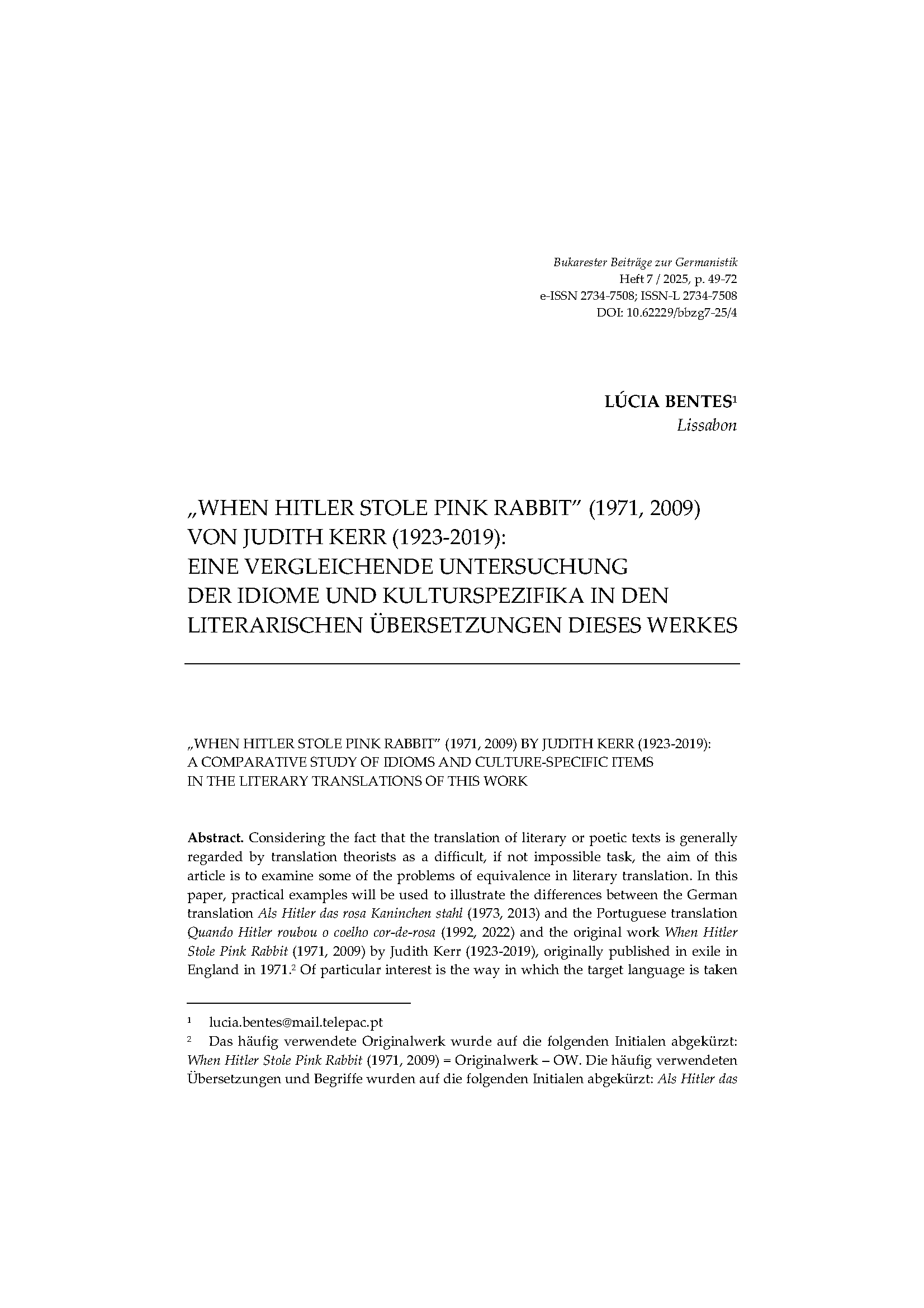„WHEN HITLER STOLE PINK RABBIT” (1971, 2009) VON JUDITH KERR (1923-2019): EINE VERGLEICHENDE UNTERSUCHUNG DER IDIOME UND KULTURSPEZIFIKA IN DEN LITERARISCHEN ÜBERSETZUNGEN DIESES WERKES
DOI:
https://doi.org/10.62229/bbzg7-25/4Keywords:
literary translation, problems of equivalence and adequacy, lexical-semantic word choice, idioms, cultural specificsAbstract
Considering the fact that the translation of literary or poetic texts is generally regarded by translation theorists as a difficult, if not impossible task, the aim of this article is to examine some of the problems of equivalence in literary translation. In this paper, practical examples will be used to illustrate the differences between the German translation Als Hitler das rosa Kaninchen stahl (1973, 2013) and the Portuguese translation Quando Hitler roubou o coelho cor-de-rosa (1992, 2022) and the original work When Hitler Stole Pink Rabbit (1971, 2009) by Judith Kerr (1923-2019), originally published in exile in England in 1971.2 Of particular interest is the way in which the target language is taken into account in the respective translation, not only on a lexical-semantic level, but mainly on a cultural level in relation to food, institutions, writers/novels, conventions and emotions. Finally, it is necessary to verify whether the word choice of the translation into the corresponding target languages, in this case German and Portuguese, is actually the appropriate one in each situation, taking into account the meaning given in the source language in English. The purpose of this paper is merely to illustrate the choices made by each translator. It is by no means intended to categorise a translation as wrong or right, but rather to indicate which translation deviates more or less from the original meaning.





